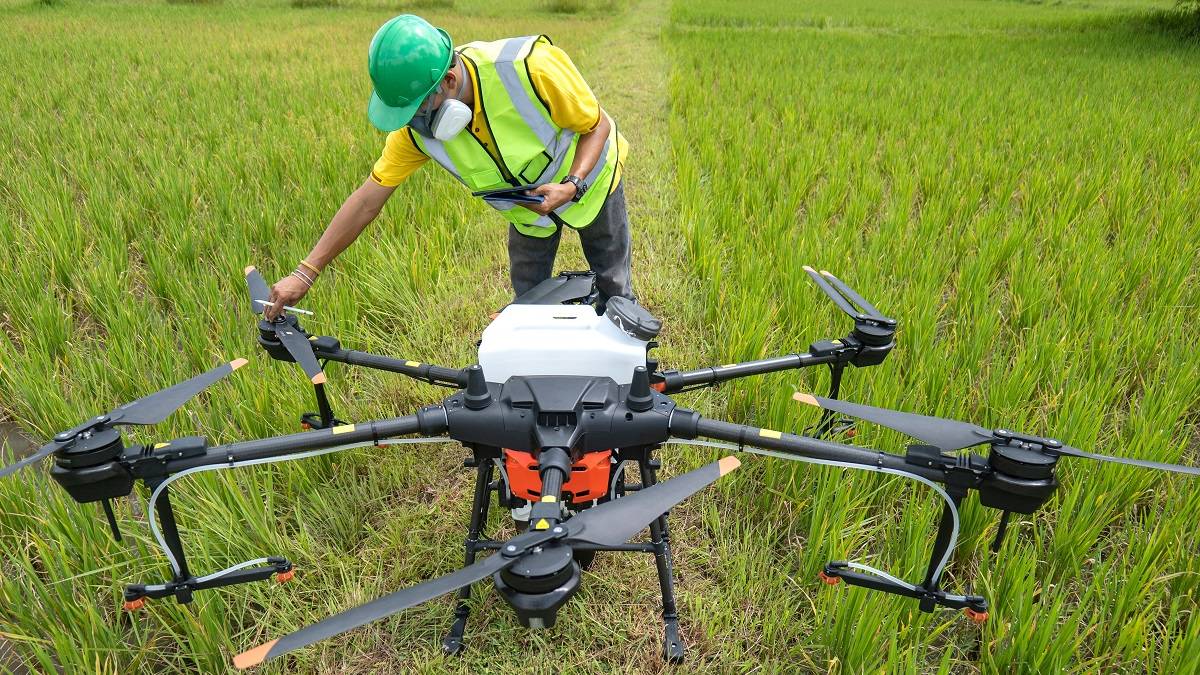Introduction:
Digital agriculture is at the forefront of transforming traditional farming practices, offering farmers advanced tools and applications to optimize their operations, increase efficiency, and enhance productivity. This article delves into digital agriculture and explores the impact of farm management apps on modern agricultural practices.
1. Smart Farming with Digital Tools: Digital agriculture integrates cutting-edge technologies to give farmers real-time insights into their fields. From sensor-equipped machinery to satellite imagery, these tools empower farmers to make data-driven decisions, optimize resource allocation, and improve overall efficiency.
2. Farm Management Apps: Streamlining Operations: Farm management apps have emerged as invaluable tools for farmers, offering a centralized platform to monitor and control various aspects of their operations. These apps cover various functions, including crop monitoring, inventory management, equipment tracking, and financial analysis.
3. Crop Monitoring and Precision Agriculture: Digital agriculture allows farmers to monitor crop health and growth patterns closely through remote sensing technologies. Farm management apps equipped with precision agriculture features enable farmers to analyze data on soil conditions, weather forecasts, and crop performance, facilitating proactive decision-making.
4. Inventory Management and Supply Chain Optimization: Efficient inventory management is crucial for successful farming operations. Farm management apps enable farmers to keep track of seed stock, fertilizers, pesticides, and other resources. These apps often integrate with supply chain systems, streamlining the process from farm to market.
5. Equipment Tracking and Maintenance: With the help of GPS and sensor technologies, farm management apps assist farmers in tracking the location and performance of their machinery. Timely alerts and maintenance reminders ensure that equipment operates at peak efficiency, minimizing downtime and reducing operational costs.
6. Financial Analysis and Planning:Digital farm management tools provide farmers with financial analysis capabilities, helping them track expenses, revenue, and overall profitability. This data-driven approach assists in budgeting, planning, and identifying areas for potential cost savings.
7. Market Access and Agricultural Networks:Many farm management apps connect farmers with broader agricultural networks, facilitating market access, collaboration, and knowledge-sharing. These platforms empower farmers to make informed decisions regarding crop sales, pricing, and market trends.
8. Challenges and Future Prospects:While digital agriculture and farm management apps offer numerous benefits, challenges such as data security, connectivity issues, and the digital divide need to be addressed. As technology continues to evolve, the future of agriculture will likely see further integration of artificial intelligence, machine learning, and advanced analytics in farm management applications.
Conclusion:
Digital agriculture and farm management apps are revolutionizing the way farmers approach their work, providing them with the tools needed to navigate the complexities of modern agriculture. As these technologies continue to advance, the agricultural landscape is poised for increased efficiency, sustainability, and resilience in the face of evolving challenges.



No comments yet
Be the first to share your thoughts!